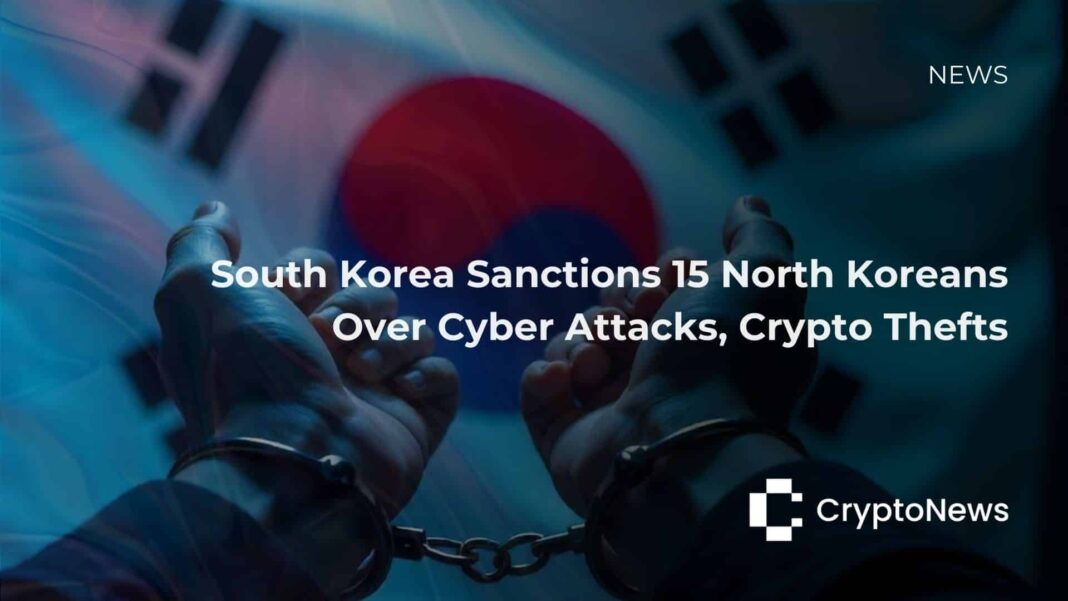Key Takeaways:
- South Korea sanctioned 15 North Koreans and one organization for laundering stolen cryptocurrency funds.
- The sanctions target Bureau 313, tied to weapons programs, and hackers linked to the Lazarus Group.
- Authorities froze assets and urged exchanges to monitor activities, strengthening global cybersecurity efforts.
South Korea has imposed sanctions on 15 North Korean individuals and one organization linked to cryptocurrency thefts. Notably, the move targets hackers accused of laundering stolen funds through cyberattacks on exchanges and decentralized platforms.
The nation’s Ministry of Foreign Affairs announced the sanctions as part of efforts to combat money laundering and prevent illicit financing. For context, the sanctioned individuals were involved in breaching blockchain networks, enabling the theft of millions in digital assets.
The 15 sanctioned had links to North Korea’s Bureau 313, which is tied to weapons production and missile programs and has operated under UN sanctions since 2016. The Ministry revealed that Bureau 313 deploys IT workers abroad, often hiding identities to secure contracts and carry out cyberattacks and data theft.
Investigators linked Kim Cheol-min, a sanctioned individual, to infiltrating U.S. and Canadian firms, funneling foreign currency to Pyongyang.
In a nutshell, these findings expose global cybersecurity gaps and highlight the need for international efforts to block state-backed hacking and financial crimes.
Targeting Cyber Threats
Accordingly, the sanctions aim to curb North Korea’s growing reliance on stolen cryptocurrency to fund activities, including weapons programs. Investigators linked the individuals to hacking groups such as Lazarus Group, known for targeting global exchanges.
Reports revealed a rise in hacking incidents targeting cryptocurrency exchanges in 2023 and 2024. Meanwhile, analysts estimate that North Korean hackers stole over $1.2 billion worth of cryptocurrencies in recent years. The sanctioned groups allegedly used blockchain obfuscation tools to hide transactions and launder funds.

Notedly, the sanctions freeze assets held in South Korean jurisdiction and block financial transactions with the individuals and entities involved. Exchanges are required to monitor and report suspicious activity tied to these groups.
Global Cooperation and Outlook
The measures align South Korea with broader international efforts to combat cybercrime in digital finance. Countries like the United States and Japan have also imposed sanctions on similar actors linked to North Korea.
Market observers expect the sanctions to increase compliance pressure on exchanges while prompting stronger security frameworks. The Ministry of Foreign Affairs urged businesses to review operations and implement stricter monitoring systems.
The full sanctions list and enforcement details are available on the Ministry of Foreign Affairs website.

